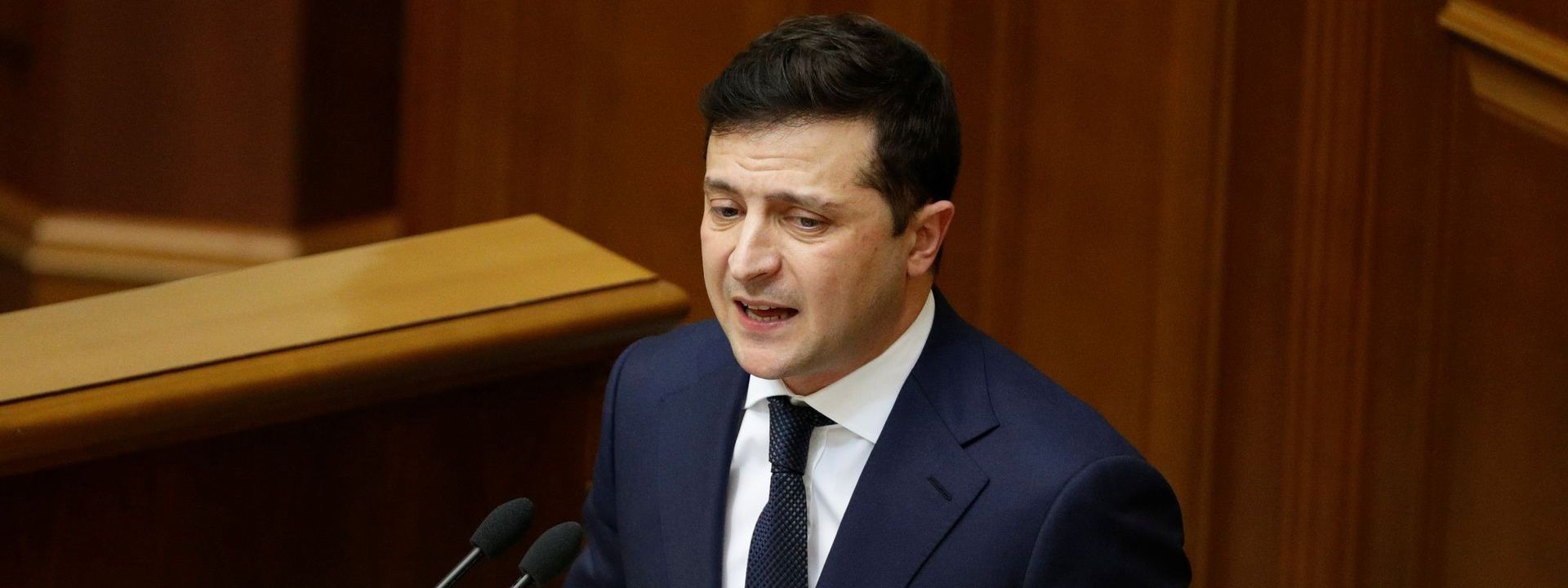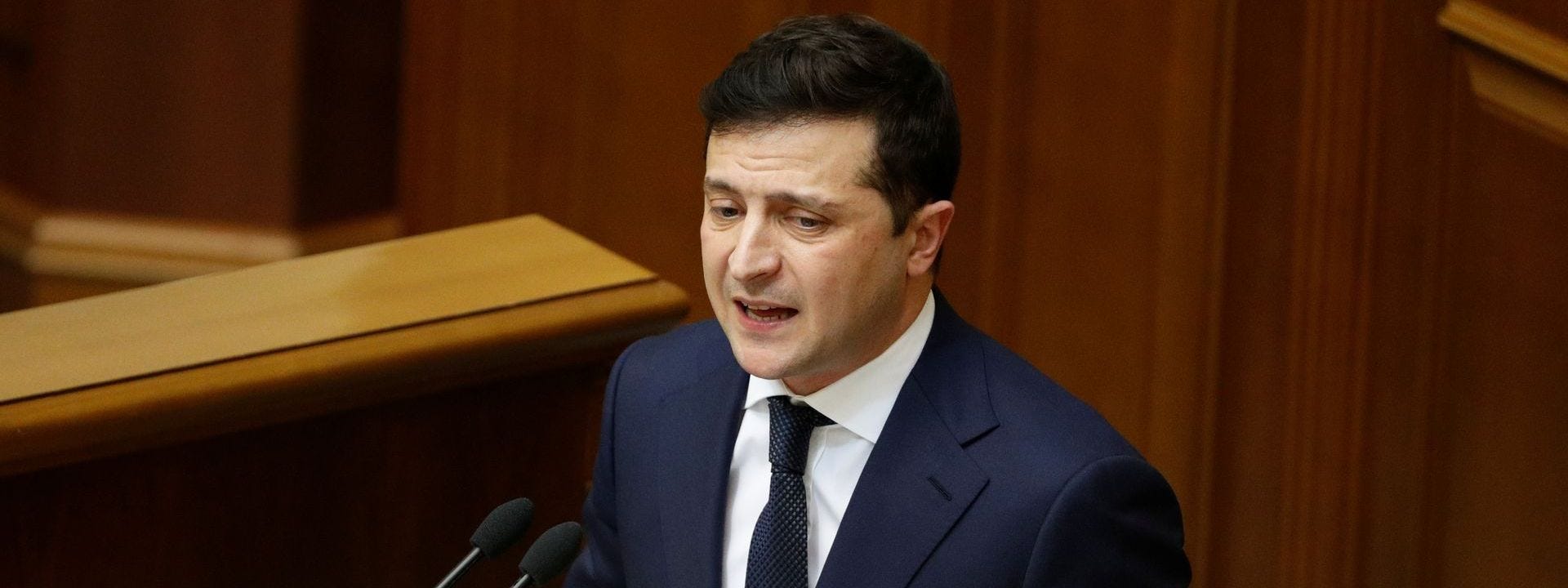
Ukrainian legislative proposal threatens to undermine the free flow of genuine information

As part of our effort to broaden expertise and understanding of information ecosystems around the world, the DFRLab is publishing this external contribution. The views and assessments in this op-ed do not necessarily represent those of the DFRLab.
When disinformation rises as a global threat to democracy and national security, governments have to react. But they also have to be careful not to threaten the free flow of genuine information in the country. A proposed bill to counter disinformation risks disturbing that balance.
When proposing the need for the bill, the Ministry of Culture, Youth and Sports declared the need to protect information space from “inaccurate information on the issues of great public importance.” While attempts by the ministry to tackle the problem are admirable — Minister Volodymyr Borodyansky (who has since been replaced by Svitlana Fomenko) presented the bill proposal just four months after taking office — the implementation of the legislation would create a number of risks.
Changes in the field are, indeed, required, as the majority of Ukraine’s media legislation is a legacy of the 1990s and 2000s. This legacy legislation is ill-suited for the challenges of the digital age, particularly the Russian disinformation that pours into Ukraine through Russian TV channels, social media, and local proxies, such as outlets connected to pro-Russian oligarch Viktor Medvedchuk.
Rather than addressing these threats, the bill creates opportunities to undermine freedom of speech for political gain.
1. The definition of “disinformation” makes it possible to use the law for political persecution.
The bill, if passed, would defines disinformation as “inaccurate information on issues of public concern (in particular, national security, territorial integrity, sovereignty, defense capability of Ukraine, the right of the Ukrainian people to self-determination, life and health of citizens, environment).” Another definition refers to inaccurate information being “false information about persons, facts, events, and phenomena that did not exist at all, or that existed but are incomplete or distorted.”
When introducing the term “disinformation,” the proposal does not propose criteria for identifying information as inaccurate, incomplete, or distorted, which creates the opportunity for abuse. The most problematic of these criteria is “completeness,” which is a quality that can be defined arbitrarily. Any information can be described as incomplete, as any information is a part of a bigger context that is not always available to journalists and, especially, broader circles also targeted by the bill.
The draft bill also ignores the concept of intent, which is fundamental for distinguishing between disinformation as the deliberate spread of false or misleading information, and misinformation, which may be spread unwittingly.
2. The definition of “mass information disseminator” is too vague and could be applied to almost any social media user.
The bill defines this newly conceived term as a “private or legal entity, including entities in the field of media, that creates and/or gathers and disseminates mass information.”
Lacking specifics, this definition could include almost every social network user and make them responsible for verifying accuracy and completeness of the information they post. Such an expectation is unrealistic, especially with the low media literacy level in Ukraine, and it could lead to selective application of the law.
3. The nature of the information commissioner’s authority is too broad.
The draft bill proposes to create a new body of authority, an “information commissioner,” who would serve as the de facto representative of the government and would wield extensive power. It is not clear how this authority would itself be held to account, however, as the bill does not outline a mechanism to deal with any potential abuse of power.
The commissioner would depend on the executive power, since they would be appointed to and dismissed by the Cabinet of Ministers that also approves regulations of the commissioner. Moreover, the bill would give the commissioner extensive powers, including:
– monitoring the information field and reacting to the claims that certain information is disinformation;
– the right to target “mass information disseminators” with a notice to refute potential disinformation;
– the power to file a lawsuit to limit access to information if a disseminator hasn’t reacted to the notice; and
– the ability to request that certain technical intermediaries (like social media platforms or blogging sites) immediately provide details about the information disseminators.
In the draft bill, there is no guarantee that the commissioner would be appointed transparently, based on expertise and experience. Similar positions are frequently taken by nominees with potential conflict of interest.
The case of Liudmyla Denisova serves as a recent example: Denisoya was appointed as parliament commissioner for human rights in 2018, when she was a member of the same political party as the controversial minister of internal affairs, Arsen Avakov. Their shared ideological background and procedural inaccuracies of the appointment made it a target of significant public criticism. The draft bill does not ensure that the position of the commissioner would be occupied by someone more dedicated to fighting disinformation than to bolstering a political party.
4. The distinction between “professional journalists” and “journalists” risks politicizing the journalistic profession.
The draft bill introduces the term “professional journalist,” defining it as a “journalist that on a regular professional basis gathers, receives, creates, edits, or disseminates mass information and is a member of the Association of Professional Journalists of Ukraine (APJU).” The APJU would be a new organization, established as a tool to divide the journalistic profession. Its members would be granted additional benefits; for example, separate provisions of the bill urge public agencies to accredit professional journalists. Furthermore, whereas current legislation stipulates that “accreditation of a journalist, a mass-media employee is performed free of charge,” the new bill insists that “accreditation of a professional journalist, a mass-media employee is performed free of charge.” (emphasis added)
Much like in the case of the information commissioner position, there is no guarantee that the APJU would not be used politically, as newly established offices often are in Ukraine.
A legislative mechanism to combat disinformation is long overdue in Ukraine; however, the current draft bill runs the risk of being wielded as a political tool that curtails media democratization. In addition to journalists, media attorneys, disinformation experts, and, most surprisingly, ruling party representatives have criticized the contours of the bill from the beginning.
The positive development is that the draft bill’s authors took public concern into account and agreed to revise it. Now that the original draft is withdrawn for additional consideration, everything will depend on the willingness of the new minister and her team to pursue legislative measures against disinformation but also to make any legislation thorough, actionable, and effective.
Ukraine remains on the frontline of Russian aggression and a testing ground for Russia’s information operations. The country now has a unique opportunity to serve as a model for the rest of the world in countering these operations while preserving democratic transparency and media freedom.
Oleksandra Tsekhanovska is a Senior Analyst at Hybrid Warfare Analytical Group, Ukrainian Crisis Media Center.
Follow along for more in-depth analysis from our #DigitalSherlocks.

